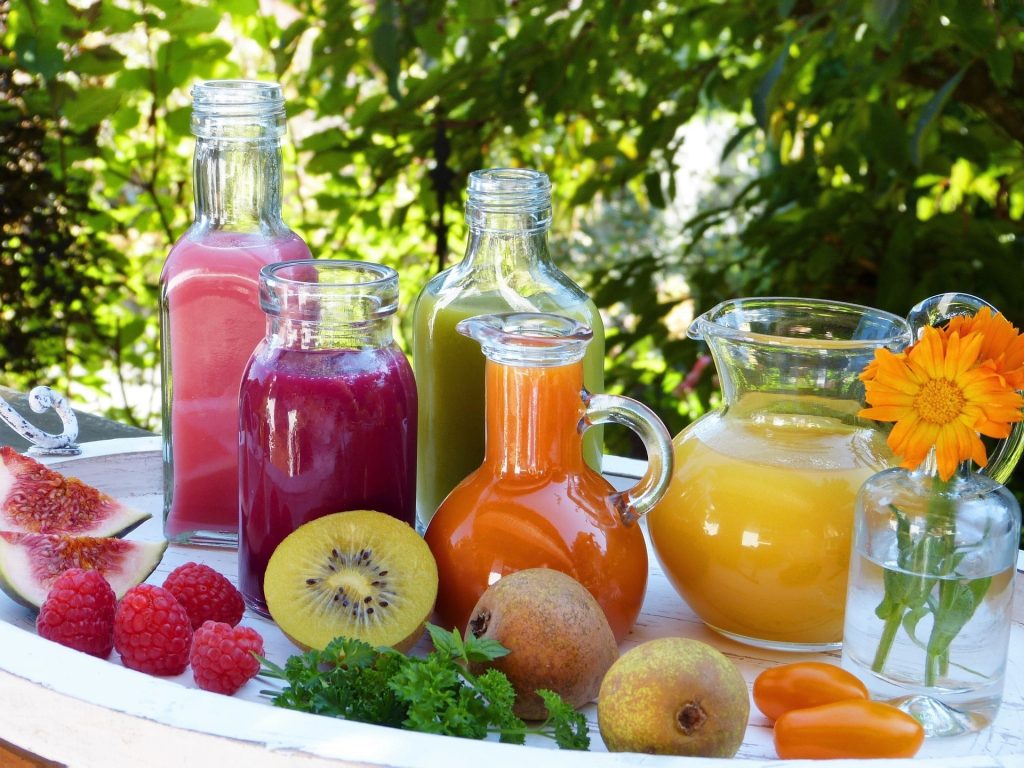In recent years, veganism has gained significant traction, with more individuals embracing plant-based eating for various reasons. From ethical considerations to health and environmental concerns, the decision to adopt a vegan lifestyle goes beyond dietary choices. Understanding the benefits and risks associated with a vegan diet is crucial for those contemplating this dietary shift. In this comprehensive blog post, we will delve into the advantages of a vegan diet, including its potential health benefits, nutritional advantages, positive environmental impact, and ethical considerations. Additionally, we will explore the potential risks and challenges one might face when following a vegan diet, offering practical tips and insights to help individuals make informed decisions. So, whether you’re a curious beginner or an experienced vegan, join us on this journey as we uncover the fascinating world of veganism and the multitude of factors involved in making it a sustainable and beneficial lifestyle choice.
Health Benefits of a Vegan Diet
A. Reduced Risk of Chronic Diseases
When it comes to promoting long-term health, a vegan diet offers a multitude of advantages. By adopting a plant-based lifestyle, individuals can significantly reduce their risk of chronic diseases, which often plague our modern society.
Lower Risk of Heart Disease
One of the most prominent benefits of following a vegan diet is the potential to lower the risk of heart disease. By eliminating animal products from their meals, individuals can significantly reduce the intake of saturated fats and dietary cholesterol, both of which are strongly linked to cardiovascular issues. Furthermore, plant-based diets are naturally rich in heart-healthy nutrients such as fiber, antioxidants, and phytochemicals, which help in reducing inflammation and improving overall cardiovascular health.
Additionally, incorporating sources of omega-3 fatty acids, like flaxseeds, chia seeds, and walnuts, can contribute to the prevention of heart disease. These essential fatty acids have been shown to decrease the risk of arrhythmias, lower triglyceride levels, and reduce plaque build-up in the arteries.
Potential for Improved Blood Pressure and Cholesterol Levels
Another advantage of embracing a vegan lifestyle is the potential for improved blood pressure and cholesterol levels. Numerous studies have demonstrated that plant-based diets, when compared to omnivorous diets, tend to be lower in saturated fat and higher in fiber, which can positively impact these crucial health markers.
By replacing meat, dairy, and other animal-derived products with whole grains, legumes, fruits, vegetables, and nuts, individuals can optimize their nutrient intake while naturally reducing their cholesterol levels. Furthermore, the abundance of dietary fiber found in plant-based foods can help regulate blood pressure by improving blood vessel function and promoting arterial health.
B. Weight Management and Increased Energy
In addition to reducing the risk of chronic diseases, a vegan diet can contribute to effective weight management and increased energy levels. These two benefits go hand in hand, creating a positive cycle that enhances overall well-being.
Weight Loss Potential
For those striving to shed excess pounds, a vegan diet can be an excellent choice. By centering meals around whole plant foods that are naturally low in calories and high in fiber, individuals can create a sustainable calorie deficit while feeling satisfied and nourished. Moreover, plant-based diets often emphasize whole grains, legumes, and vegetables, which are nutrient-dense and provide essential vitamins, minerals, and antioxidants necessary for optimal health.
Enhanced Energy Levels and Vitality
When you fuel your body with nutrient-dense plant-based foods, you may experience a notable increase in energy levels and vitality. The abundance of vitamins, minerals, and antioxidants found in fruits, vegetables, whole grains, and nuts provides a solid foundation for sustained energy throughout the day. Additionally, plant-based diets are typically rich in complex carbohydrates, which serve as the primary source of energy for our bodies. These carbs are slow-burning, providing a steady release of energy, unlike the rapid spikes and crashes often associated with refined sugars and processed foods.
C. Potential for Lowering Blood Sugar Levels
Beyond the benefits mentioned above, a vegan diet shows promise in lowering blood sugar levels, making it particularly valuable for individuals managing or seeking to prevent type 2 diabetes or those with insulin resistance.
Managing and Preventing Type 2 Diabetes
Research has shown that adopting a vegan diet can be an effective strategy in managing and preventing type 2 diabetes. By eliminating animal products and focusing on whole plant foods, individuals can naturally reduce their intake of saturated fats and promote weight loss, both of which are essential factors in diabetes management. Furthermore, plant-based diets tend to be high in fiber, which aids in blood sugar control by slowing down digestion and the release of glucose into the bloodstream. This helps prevent sudden spikes in blood sugar levels, promoting better glycemic control.
Benefits for Individuals with Insulin Resistance
Insulin resistance is a condition in which cells become less responsive to the effects of insulin, leading to elevated blood sugar levels. A vegan diet can offer significant benefits for individuals with insulin resistance. By emphasizing whole plant foods, individuals can improve insulin sensitivity and reduce the strain on the pancreas, which produces insulin. Plant-based diets are typically low in processed foods, refined sugars, and unhealthy fats, all of which can contribute to insulin resistance. Instead, they provide a wide array of nutrients, including fiber, vitamins, minerals, and antioxidants that support optimal metabolic function.
Moreover, plant-based diets often include foods with a low glycemic index, meaning they cause a slower and more gradual increase in blood sugar levels. This can be particularly advantageous for individuals with insulin resistance, as it helps prevent spikes and crashes in blood sugar levels, promoting more stable energy levels and overall well-being.

Nutritional Advantages of a Vegan Diet
A. High in Nutrient-Dense Foods
When it comes to nourishing our bodies, a vegan diet offers a plethora of nutritional advantages and individuals can fuel themselves with a rich array of vital nutrients.
Plant-based foods serve as exceptional sources of vitamins, minerals, and antioxidants, all of which are essential for optimal health and well-being. These nutrients play critical roles in maintaining a healthy immune system, promoting cell growth and repair, and supporting various body functions.
Additionally, whole grains like quinoa, brown rice, and oats are not only packed with essential nutrients but also offer dietary fiber, providing a nourishing and satisfying foundation for a vegan diet.
B. Increased Fiber Intake
One of the notable benefits of adopting a vegan diet is the increased intake of dietary fiber. Fiber is a type of carbohydrate that our bodies cannot fully digest, but it plays a crucial role in supporting digestive health and regularity.
By consuming ample amounts of fiber through a plant-based diet, individuals can promote optimal gut function and reduce the risk of constipation. Fiber adds bulk to our stool, facilitating smoother bowel movements and preventing discomfort. Moreover, it can help regulate cholesterol levels by binding to bile acids in the intestines and promoting their excretion, thereby potentially reducing the risk of cardiovascular diseases.
Research suggests that a high-fiber diet may also contribute to a reduced risk of certain cancers, particularly colorectal cancer. The fiber-rich nature of a vegan diet helps maintain a healthy gut microbiome, which influences various aspects of our health, including immune function and inflammation regulation.
C. Plant-Based Protein Sources
Contrary to common misconceptions, a well-planned vegan diet can provide ample protein to meet the body’s needs. While animal products are often touted as the primary sources of protein, there is a diverse array of plant-based protein sources available to vegans.
Legumes, such as lentils, chickpeas, and black beans, are excellent sources of plant-based protein, offering a substantial amount per serving. They are also rich in other essential nutrients like iron and folate.
Furthermore, whole grains like quinoa and amaranth, as well as pseudo-grains like buckwheat and wild rice, provide protein along with a host of other beneficial nutrients. These grains can be versatile additions to a vegan diet, offering a balanced and complete source of protein.
Nuts and seeds, such as almonds, chia seeds, and hemp seeds, are also noteworthy protein powerhouses. They not only provide protein but also offer healthy fats, fiber, vitamins, and minerals, making them an excellent option for vegans.
It’s essential to emphasize that a varied and balanced vegan diet can easily meet protein requirements, and protein deficiency is uncommon among vegans who consume a well-planned diet. By incorporating a combination of these plant-based protein sources, vegans can ensure they receive all the essential amino acids necessary for optimal health.

Environmental Impact
A. Lower Carbon Footprint
When it comes to environmental sustainability, adopting a vegan diet can have a significant positive impact. By reducing our reliance on animal agriculture, we can effectively contribute to lowering our carbon footprint and mitigating the adverse effects of climate change.
Exploring the Environmental Benefits of Reducing Animal Agriculture
Animal agriculture is a major contributor to greenhouse gas emissions, primarily due to the methane released by livestock and the carbon dioxide generated during the production and transportation of animal feed. By shifting towards a vegan diet, we can reduce the demand for animal products, thereby decreasing the number of greenhouse gases released into the atmosphere.
Comparing Greenhouse Gas Emissions
Studies have shown that animal agriculture is responsible for a substantial portion of global greenhouse gas emissions. Livestock farming, including methane emissions from cattle, sheep, and other ruminants, accounts for a significant portion of these emissions. Additionally, the clearing of land for grazing and feed crop production contributes to deforestation, releasing stored carbon into the atmosphere.
In contrast, a vegan diet significantly reduces greenhouse gas emissions. Plant-based foods require fewer resources to produce, resulting in a lower carbon footprint. By consuming plant-based alternatives to animal products, we can help combat climate change and create a more sustainable future.
B. Conservation of Resources
In addition to reducing greenhouse gas emissions, a vegan diet also promotes the conservation of precious resources such as water and land. By considering the environmental impact of our food choices, we can contribute to the preservation of natural resources and mitigate the negative consequences associated with animal agriculture.
Water and Land Use Considerations
Animal agriculture is a notoriously water-intensive industry. From providing water for livestock to irrigating feed crops, the amount of water required is staggering. By transitioning to a vegan diet, we can significantly reduce our water footprint. Plant-based foods generally require less water to produce compared to animal-derived products, thereby conserving this valuable resource.
Furthermore, the amount of land needed for animal agriculture is vast. Livestock farming requires substantial areas for grazing and growing feed crops. This leads to deforestation, as forests are cleared to make way for pasture or to cultivate crops like soybeans and corn for animal feed. By choosing plant-based options, we can help mitigate deforestation and the associated loss of biodiversity, preserving vital ecosystems.
Impact on Deforestation and Biodiversity Loss
Deforestation is a significant environmental concern directly linked to animal agriculture. The clearing of forests for livestock grazing and feed crop production not only leads to the loss of habitat for countless plant and animal species but also contributes to the release of carbon stored in trees, exacerbating climate change.
By embracing a vegan diet, we can actively contribute to the reduction of deforestation and help preserve biodiversity. Plant-based foods require less land to produce, allowing for the conservation of natural habitats and the protection of endangered species.

Ethical and Animal Welfare Considerations
A. Compassionate Lifestyle
Veganism is not just about dietary choices; it is a way of life rooted in compassion and ethical considerations. Understanding the ethical reasons behind veganism can inspire individuals to adopt a lifestyle that promotes kindness towards all sentient beings.
Understanding the Ethical Reasons behind Veganism
At the core of veganism lies the recognition that animals have the capacity to experience pain, joy, and a range of emotions. By choosing a vegan lifestyle, individuals align their actions with their belief in the inherent value and rights of animals.
Vegans aim to reduce animal suffering by abstaining from the use and consumption of animal products. This includes refraining from using products derived from animals, such as leather, fur, and cosmetics tested on animals. By embracing a compassionate lifestyle, individuals contribute to creating a world where animals are respected and their well-being is prioritized.
Promoting Cruelty-Free Practices and Reducing Animal Suffering
One of the key motivations for choosing a vegan lifestyle is to promote cruelty-free practices. The conditions in which animals are often raised in industrial farming systems are far from humane. Animals are confined to cramped spaces, subjected to painful procedures without anesthesia, and deprived of the ability to engage in natural behaviors.
By opting for a vegan lifestyle, individuals actively support the reduction of animal suffering. Plant-based diets eliminate the demand for animal products, leading to a decrease in the number of animals raised and slaughtered for food. This shift towards cruelty-free practices promotes a more compassionate and empathetic society.
B. Factory Farming and Animal Rights
Highlighting the Issues with Industrial Animal Agriculture
Factory farming, also known as industrial animal agriculture, is a system that prioritizes efficiency and profit at the expense of animal welfare. Animals are treated as commodities rather than sentient beings, leading to widespread ethical concerns.
In factory farms, animals are subjected to confinement, overcrowding, and unsanitary conditions. They often endure painful procedures such as dehorning, debeaking, and tail docking without adequate pain relief. The use of growth-promoting hormones and antibiotics further compounds the ethical issues associated with intensive farming practices.
Advocating for Humane Treatment and Alternative Farming Methods
Vegans advocate for the humane treatment of animals and support alternative farming methods that prioritize animal welfare. These methods include free-range farming, pasture-based systems, and organic farming practices that provide animals with access to outdoor spaces, natural diets, and the ability to engage in their instinctive behaviors.
By supporting these alternative farming methods and choosing products that adhere to higher animal welfare standards, individuals can contribute to the ongoing efforts to improve the lives of farm animals.
Potential Risks and Challenges
A. Nutritional Deficiencies
While a vegan diet can provide numerous health benefits, it is important to be mindful of potential nutritional deficiencies that may arise.
Discussing Common Nutrients that May Require Attention in a Vegan Diet
Certain nutrients may be more challenging to obtain in adequate amounts from a vegan diet. These include vitamin B12, iron, calcium, omega-3 fatty acids, and zinc. Vitamin B12 is primarily found in animal-based foods, and its deficiency can lead to fatigue and nerve damage. Iron is essential for oxygen transport in the body, and plant-based sources may be less easily absorbed compared to animal sources. Calcium is vital for bone health, and while plant-based sources such as fortified non-dairy milks and leafy greens are available, careful attention is needed to ensure sufficient intake. Omega-3 fatty acids, particularly the long-chain variety EPA and DHA, are predominantly found in fatty fish. Vegans can obtain omega-3s from plant-based sources like flaxseeds, chia seeds, and walnuts, but the conversion rate in the body may be limited. Lastly, zinc is important for immune function and growth, and plant-based sources like legumes and whole grains can contribute to meeting zinc needs, but bioavailability may be lower.
Strategies for Ensuring a Well-Balanced and Varied Vegan Meal Plan
To address potential nutritional deficiencies, it is essential to adopt a well-planned and varied vegan meal plan. Incorporating a wide range of nutrient-dense plant foods is key. For vitamin B12, supplementation or consumption of fortified foods like plant-based milks and breakfast cereals is recommended. Iron absorption can be enhanced by consuming iron-rich foods alongside sources of vitamin C, such as citrus fruits or bell peppers. Calcium needs can be met by including fortified plant-based milk alternatives, tofu, and leafy green vegetables. Omega-3 fatty acids can be obtained by consuming plant-based sources and considering supplementation with algae-based omega-3 supplements. Lastly, incorporating zinc-rich plant foods like legumes, nuts, seeds, and whole grains can help meet zinc requirements.
B. Difficulty Meeting Specific Dietary Needs
While a vegan diet can be suitable for people of all ages and lifestyles, certain groups may face additional challenges in meeting specific dietary needs. Athletes, children, and pregnant women require special attention to ensure optimal nutrition.
Addressing Challenges for Athletes, Children, and Pregnant Women on a Vegan Diet
Athletes on a vegan diet need to ensure adequate energy intake, as well as appropriate amounts of protein, carbohydrates, and fats to support their training and performance. Attention should be given to optimizing nutrient timing and choosing high-quality plant-based protein sources to support muscle repair and recovery.
For children on a vegan diet, special consideration must be given to their nutrient needs for growth and development. Ensuring sufficient intake of calories, protein, iron, calcium, vitamin D, and vitamin B12 is crucial. Careful meal planning and regular monitoring of growth and nutrient status are important to support their overall health.
Pregnant women on a vegan diet should pay attention to their nutrient intake to support both their own health and the development of the fetus. Adequate intake of calories, protein, iron, folate, calcium, iodine, and omega-3 fatty acids is vital. Regular prenatal check-ups and consultation with healthcare professionals experienced in plant-based nutrition are essential to ensure optimal maternal and fetal well-being.
Consultation with Healthcare Professionals
In navigating the potential risks and challenges associated with a vegan diet, it is advisable to consult with healthcare professionals, particularly registered dietitians or nutritionists with expertise in plant-based nutrition. These professionals can provide personalized guidance and help tailor a vegan meal plan to meet individual needs, taking into account specific dietary requirements, lifestyle factors, and potential risks.
Working with a healthcare professional can help identify any nutrient gaps and develop strategies to address them effectively. They can provide valuable insights on nutrient-rich food choices, appropriate supplementation, and offer support throughout the journey of following a vegan diet.
It’s important to note that each person’s nutritional needs are unique, and individualized guidance is crucial, especially for those with specific dietary needs or medical conditions. A healthcare professional can help ensure that any potential risks or challenges associated with a vegan diet are properly addressed, promoting optimal health and well-being.

Food Preparation and Meal Planning
A. Vegan Recipe Ideas
Embarking on a vegan lifestyle doesn’t mean sacrificing flavor or variety in your meals. In fact, there is an abundance of delicious and nutritious plant-based recipe ideas to explore, catering to different taste preferences and dietary restrictions. Whether you’re a seasoned vegan or new to the lifestyle, these recipe suggestions will inspire you to create mouthwatering dishes that are both satisfying and nourishing.
Providing Delicious and Nutritious Plant-Based Recipe Suggestions
- Flavorful Buddha Bowl: Build a vibrant bowl filled with a colorful assortment of roasted vegetables, quinoa or brown rice, chickpeas, avocado slices, and a drizzle of tahini dressing. This bowl offers a combination of plant-based proteins, healthy fats, and essential vitamins and minerals.
- Creamy Coconut Curry: Simmer a medley of vegetables such as cauliflower, bell peppers, and peas in a fragrant coconut curry sauce. Serve it over fluffy basmati rice or with whole wheat naan for a satisfying and aromatic meal packed with spices and antioxidants.
- Quinoa Stuffed Bell Peppers: Fill bell peppers with a mixture of cooked quinoa, black beans, corn, diced tomatoes, and spices. Bake until the peppers are tender and the filling is perfectly seasoned. This recipe provides a balanced combination of protein, fiber, and essential nutrients.
- Zucchini Noodles with Creamy Cashew Pesto: Spiralize fresh zucchini into noodle-like strands and toss them in a creamy cashew-based pesto sauce. Top with cherry tomatoes and toasted pine nuts for added texture and flavor. This light and refreshing dish is rich in healthy fats and antioxidants.
Catering to Different Taste Preferences and Dietary Restrictions
Vegan recipes can be customized to suit a wide range of taste preferences and dietary needs. For those who prefer a spicy kick, adding chili peppers, sriracha, or other hot sauces can elevate the flavor profile. If you have gluten sensitivities or allergies, you can explore gluten-free grains like quinoa, buckwheat, or rice as substitutes. Furthermore, experimenting with various herbs, spices, and seasonings can help create unique flavor combinations that cater to individual preferences.
B. Vegan Meal Planning Tips
Crafting well-balanced vegan meals and meeting nutrient requirements is essential for optimal health and satisfaction. With a little planning and creativity, you can ensure that your vegan meal plan is both nutritionally complete and enjoyable.
Practical Guidance for Creating Balanced Meals and Meeting Nutrient Requirements
- Include a Variety of Plant-Based Protein Sources: Incorporate diverse protein-rich foods such as legumes (beans, lentils, and chickpeas), tofu, tempeh, seitan, and edamame. These sources provide essential amino acids and are key components of a well-rounded vegan diet.
- Load Up on Colorful Fruits and Vegetables: Aim to fill half of your plate with a rainbow of fruits and vegetables. This ensures a wide array of vitamins, minerals, and antioxidants, promoting overall health and vitality.
- Don’t Forget Healthy Fats: Incorporate sources of healthy fats such as avocados, nuts, seeds, and olive oil. These fats are essential for nutrient absorption and provide satiety.
- Pay Attention to Calcium and Vitamin B12: Include calcium-rich plant-based foods like fortified plant milks, tofu, and leafy greens. For vitamin B12, which is primarily found in animal products, consider fortified foods or supplements.
Incorporating Variety and Experimenting with Flavors
One of the keys to maintaining excitement and satisfaction with a vegan meal plan is to embrace variety and experiment with flavors. Try new fruits, vegetables, grains, and spices to diversify your palate. Explore international cuisines to discover new flavors and cooking techniques. For example, you can explore Mediterranean dishes with ingredients like olives, artichokes, and herbs, or delve into Asian cuisine with tofu stir-fries, sushi rolls, or coconut curries. The possibilities are endless.
Additionally, don’t shy away from trying plant-based alternatives and substitutes. There are now a plethora of plant-based options available, such as plant-based meats, dairy-free cheeses, and egg replacements, that can add variety and familiarity to your meals.
To keep your vegan meal plan interesting and enjoyable, consider incorporating themed meal nights, such as Taco Tuesdays, Pasta Fridays, or Meatless Mondays. This not only adds structure to your meal planning but also allows for creativity within specific culinary themes.
Furthermore, take advantage of online resources, vegan cookbooks, and social media platforms to discover new recipes and connect with a vibrant community of fellow vegans. Sharing experiences, swapping recipe ideas, and seeking inspiration can be a fantastic way to stay motivated and continue exploring the world of vegan cuisine.

Social Considerations and Practical Tips
A. Dining Out and Social Events
Transitioning to a vegan lifestyle doesn’t mean you have to avoid dining out or attending social events. With a little knowledge and preparation, you can navigate these situations with ease while staying true to your dietary choices. Here are some tips to help you navigate vegan options in restaurants and social gatherings, and effectively communicate your dietary needs.
Navigating Vegan Options in Restaurants and Social Gatherings
- Research Beforehand: Before heading out to a restaurant, take some time to research their menu online. Many establishments now offer vegan options or are willing to accommodate dietary requests. Look for dishes that are plant-based or can be easily modified to fit your needs.
- Communicate Clearly: When dining out, communicate your dietary preferences and restrictions to the waitstaff or chef. Use specific language such as “vegan” to ensure there is no confusion about what you can and cannot consume. Ask questions about ingredients and preparation methods to make informed choices.
- Be Adventurous: Don’t be afraid to try new things! Many restaurants now offer creative and delicious vegan dishes that can surprise and delight your taste buds. Embrace the opportunity to explore different flavors and cuisines.
- Offer Suggestions: If you find a restaurant that doesn’t have many vegan options, kindly suggest plant-based alternatives or modifications to existing dishes. This can help encourage establishments to expand their offerings and cater to a wider range of dietary needs.
B. Vegan Shopping and Label Reading
Understanding food labels and identifying hidden animal-derived ingredients is essential when shopping for vegan-friendly products. Here are some tips to help you navigate the grocery store aisles and make informed choices:
Understanding Food Labels:
Familiarize yourself with common terms used on food labels, such as “vegan,” “plant-based,” “dairy-free,” and “animal-free.” These labels can provide a quick indication of whether a product aligns with your dietary preferences.
Identifying Hidden Animal-Derived Ingredients: Be aware of ingredients that may be derived from animals but have unfamiliar names. Some examples include gelatin, whey, casein, and honey. Educate yourself about these ingredients and consider carrying a list of common non-vegan ingredients for reference.
Exploring Vegan Alternatives and Products:
Take the time to explore the wide range of vegan alternatives available in grocery stores. From plant-based milk and cheeses to meat substitutes and condiments, there are numerous options to suit your tastes and dietary needs. Experiment with different brands and products to find your favorites.
Additionally, consider supporting local farmers’ markets and specialty stores that offer a variety of fresh, whole plant-based foods. These can be excellent sources for unique and ethically sourced ingredients.
Common Myths and Misconceptions
A. Protein Myth
One of the most common myths surrounding a vegan diet is the belief that it’s difficult to obtain adequate protein. However, this couldn’t be further from the truth. Plant-based foods offer a wide range of protein sources that can easily meet your daily requirements. Let’s debunk this myth and explore protein-rich plant-based sources.
Dispelling the Myth of Inadequate Protein in a Vegan Diet
Protein is an essential macronutrient that plays a crucial role in building and repairing tissues, supporting immune function, and producing enzymes and hormones. Contrary to popular belief, plant-based diets can provide all the necessary amino acids for optimal health.
Legumes such as lentils, chickpeas, and beans are excellent sources of protein. They are not only rich in protein but also high in fiber, vitamins, and minerals. Incorporating legumes into your meals, whether in soups, stews, salads, or plant-based burgers, can easily meet your protein needs.
Another protein powerhouse for vegans is tofu and tempeh. These soy-based products are versatile and can be used in various recipes. They offer a complete source of protein, containing all essential amino acids. Tofu can be stir-fried, baked, or blended into smoothies, while tempeh can be marinated and grilled for a delicious protein-packed meal.
Quinoa, a grain-like seed, is another fantastic plant-based protein source. It is not only high in protein but also contains essential amino acids. Quinoa can be used as a base for salads, added to stir-fries, or enjoyed as a side dish.
Nuts and seeds are also rich in protein and healthy fats. Almonds, walnuts, chia seeds, and hemp seeds are excellent options to incorporate into your meals and snacks. Sprinkle them over salads, blend them into smoothies, or enjoy them as a quick and nutritious snack.
By incorporating these protein-rich plant-based sources into your diet, you can easily meet your protein requirements without the need for animal products.

B. Vitamin B12 and Nutrient Deficiencies
Vitamin B12 is often a concern when it comes to vegan diets, as it is primarily found in animal-based products. However, with proper planning and supplementation, it is entirely possible to obtain adequate levels of this essential nutrient. Let’s address the concerns about nutrient deficiencies in a vegan diet and explore strategies for ensuring sufficient intake.
Addressing Concerns about Essential Nutrients in a Vegan Diet
Vitamin B12 is necessary for nerve function, red blood cell production, and DNA synthesis. While plant-based foods don’t naturally contain vitamin B12, fortified foods and supplements can easily fulfill your needs. Look for fortified plant milks, breakfast cereals, and nutritional yeast, which are reliable sources of this important vitamin. It is also recommended to consult with a healthcare professional for personalized advice and to monitor your B12 levels regularly.
Apart from vitamin B12, it’s essential to pay attention to other nutrients that may require attention in a vegan diet. Iron, calcium, omega-3 fatty acids, and iodine are among the nutrients that should be monitored.
Iron can be found in plant-based sources such as lentils, spinach, tofu, and quinoa. To enhance absorption, consume iron-rich foods with vitamin C-rich foods, such as citrus fruits or bell peppers.
Calcium is abundant in leafy greens, fortified plant-based milk, tofu, and sesame seeds. If needed, calcium-fortified products or supplements can also be considered.
Omega-3 fatty acids, particularly EPA and DHA, are primarily found in fish. However, they can be obtained from plant sources such as flaxseeds, chia seeds, walnuts, and algae-based oils or supplements derived from microalgae.
Iodine is an essential mineral for thyroid function, and it can be obtained from iodized salt, seaweed, and sea vegetables. However, it’s important to be mindful of the iodine content in your diet, as excessive consumption can also have negative effects on health. Consult with a healthcare professional to ensure you’re meeting your iodine needs without surpassing the recommended intake.
In addition to these specific nutrients, it’s crucial to follow a well-balanced and varied vegan meal plan that includes a wide range of fruits, vegetables, whole grains, legumes, nuts, and seeds. This diversity ensures you’re getting a broad spectrum of vitamins, minerals, and antioxidants that support overall health and vitality.
If you have any concerns about nutrient deficiencies or ensuring a well-balanced vegan diet, it’s highly recommended to consult with a registered dietitian or healthcare professional who specializes in plant-based nutrition. They can provide personalized guidance, analyze your dietary intake, and recommend appropriate supplements if needed.
Remember, being mindful of your nutrient intake and making informed choices can help you maintain a healthy and balanced vegan lifestyle. By dispelling the myths surrounding protein and addressing concerns about essential nutrients, you can confidently thrive on a plant-based diet while enjoying its many health benefits.

As we reach the end of this exploration into the benefits and risks of a vegan diet, it’s clear that this dietary choice carries both significant advantages and potential challenges. The health benefits of a vegan diet, including reduced risks of chronic diseases, weight management, and improved blood sugar control, cannot be ignored. Moreover, the nutritional advantages, such as increased intake of nutrient-dense foods and fiber, contribute to overall well-being.
We’ve also discussed the positive environmental impact of choosing a vegan lifestyle, including lower carbon emissions and conservation of resources. Ethical considerations surrounding animal welfare have been highlighted, emphasizing the compassionate nature of veganism.
However, it’s crucial to acknowledge the potential risks and challenges associated with a vegan diet, such as the need for careful nutrient planning and addressing specific dietary needs for certain groups. By consulting healthcare professionals and adopting mindful meal planning, these challenges can be effectively managed.
In conclusion, embracing a vegan diet is a personal choice that involves a deeper understanding of its benefits and risks. It offers a pathway to improved health, a reduced environmental footprint, and a compassionate approach to animal welfare. Whether you choose to fully commit to veganism or incorporate plant-based meals into your diet, the knowledge gained from this blog post will empower you to make informed decisions and create a balanced, sustainable, and fulfilling approach to your dietary choices. Remember, the journey towards a healthier, more conscious lifestyle starts with the choices we make each day.






